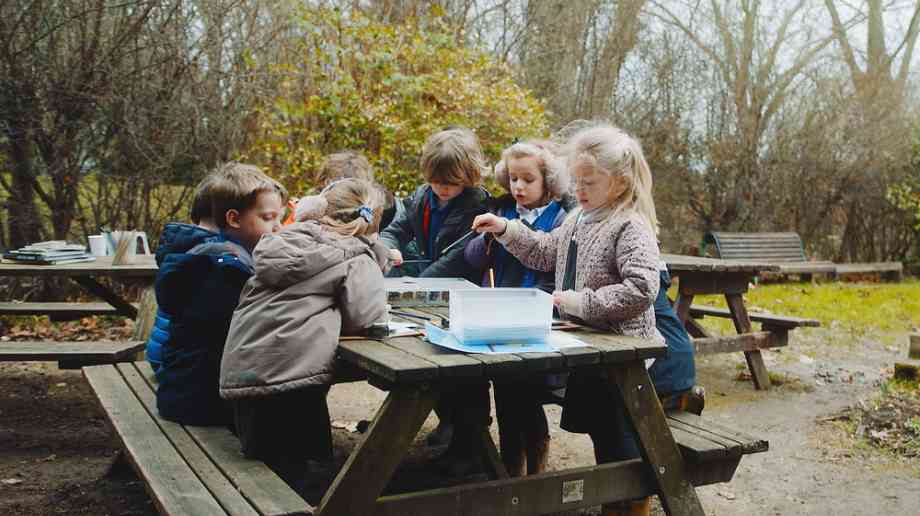
Opportunities for learning beyond the classroom
The latest research highlights that learning outside the classroom has maximum impact when it is woven into the school curriculum and daily teaching practice. Matilda Miles from the Council for Learning Outside the Classroom explains why teaching in different environments should be a priority for schools and what support is available to help schools develop their provision
It’s a challenging time for schools – with ever-tightening budgets and stretched resources, it can often feel like playing a game of catch up. Taking the time to plan opportunities for students to learn outside of the classroom (LOtC) may seem counterproductive when dealing with so many competing priorities. However, LOtC shouldn’t be an add-on that only happens occasionally on an off-site school visit; the latest research highlights that LOtC experiences have maximum impact when they are woven into the school curriculum and daily teaching practice. Matilda Miles from the Council for Learning Outside the Classroom explains why LOtC should be a priority for schools and what support is available to help you develop your LOtC practice.
What does the research tell us?
Providing students with opportunities to access high quality learning beyond the classroom experiences can open their eyes to the world around them and allows them to develop into well-rounded citizens. The latest research confirms that LOtC can enhance academic attainment and support health and well-being. A newly published research report by the Department for Education, ‘State of the nation 2022: children and young people’s wellbeing’, highlights the importance of a supportive school environment, strong social relationships, an active lifestyle, and nature experiences in the daily lives of children and young people. LOtC can be used as an effective tool to address these needs.
Two new evidence reports from CLOtC and Natural England confirm that LOtC in natural environments can deliver multiple positive health and learning benefits for students. Specific outcomes include improved attendance rates, increased attainment, increased physical activity which was found to have a positive impact on cardiovascular health; as well as positive outcomes for mental health, including improvements in emotional well-being, self-esteem, and resilience.
Furthermore, schools that have already embedded LOtC into their routine teaching practice demonstrate that it can also have a positive social return on investment (SROI). The forecast SROI for schools who have embedded learning outside the classroom in natural environments as a whole school approach is £4.32 for every £1 invested, and this is likely to be an underestimate.
Small things can make a big difference
The reports support the view that LOtC still has a positive impact whether it happens on school grounds, locally or further afield on an off-site visit. The reports state that even the presence of natural environments in or around homes and educational settings are also associated with positive learning, behavioural, emotional, and health outcomes. LOtC doesn’t have to be extravagant or expensive to have impact. Start with the question – is the classroom the best place to teach this lesson? LOtC might be as simple as taking your students outside into the school grounds and using the environment to explain a new concept. This approach lowers costs, lowers risk, uses staff time efficiently, is more sustainable, and easily adaptable to students’ ability, subject and learning objectives.
No matter whether your school is based in an urban or rural environment, there will be a huge range of learning opportunities on your doorstep. From a short walk to the local shops or park; taking the bus to the town’s art gallery, museum or theatre; or inviting parents or local businesses into school to talk to your students about their profession or trade: students will relish learning in different places that are familiar to them and it will help them develop connections with their local community.
What about safety and learning outcomes?
With some creative thinking and planning ahead, educational visits and experiences can be accessible for schools and all students without sacrificing safety, quality and learning outcomes. Why not take a short walk around the local area with your teaching team to identify the learning opportunities – what are the natural spaces, businesses, attractions, community groups you could connect with and what areas of the curriculum could they support? Planning ahead and considering potential risks are key to a successful outing and including the students in this process can benefit everyone, especially children with SEND; by talking them through any plans beforehand they will feel more prepared and engaged.
Jon Clarke – shadow headteacher at Walsall Academy, said: “Prior to 2020, our school had 500 students taking part in residential courses; because of the COVID19 pandemic, we went from that to zero in a day! We soon realised the local area also had so much to offer and vital core learning could still be achieved. We pushed the reset button and came out stronger because of it.”
Look for the LOtC Quality Badge
When taking students off-site to visit a venue or organisation, plan-ahead and look for the LOtC Quality Badge – the only national accreditation that recognises LOtC providers that offer high-quality learning experiences as well as effective risk management and is endorsed by the Department of Education. The Outdoor Education Advisers’ Panel endorse the LOtC Quality Badge and most Local Authority and Academy Trust’s Outdoor Education Advisers accept it in place of some or all of their provider checks, so using an accredited provider reduces your own paperwork, making sign-off for your visit quicker and simpler. There are a huge range of providers who hold the LOtC Quality Badge across the UK, you can search for them by area or by type, quickly and easily on the LOtC Quality Badge website.
Developing your LOtC
At the Council for Learning Outside the Classroom (CLOtC), we believe that all children and young people should have opportunities for life-changing learning experiences beyond the classroom. Our support package for schools helps you to provide these experiences and embed LOtC into your daily teaching practice and school culture. As part of our Learning Beyond programme we offer two pathways – LOtC Mark and Mentoring, which provide a helpful framework and tailored support depending on where you are on your LOtC journey. Schools can also sign up to a CLOtC membership which gives you access to resources, teaching ideas, training sessions and discounts for CLOtC events. Find out more about the support we offer on our website.
With the many positive benefits of LOtC now well-evidenced and tailored support from CLOtC for schools at all stages of developing their LOtC provision, there is more reason than ever to take your teaching beyond the classroom walls and bring learning experiences to life.
Latest News
19/12/2025 - 09:54
The Education Committee has expanded its ongoing inquiry into the early years sector to examine how safeguarding can be strengthened in early years settings.
18/12/2025 - 09:25
The UK will be rejoining the Erasmus programme in 2027, following a package of agreements with the EU.
17/12/2025 - 09:31
Ofqual has fined exam board Pearson more than £2 million in total for serious breaches in three separate cases between 2019 and 2023 which collectively affected tens of thousands of students.
16/12/2025 - 09:19
The average funding rates will increase by 4.3% for under 2s, and by almost 5% for 3-and-4-year-olds.
15/12/2025 - 10:30
Local colleges are set to receive £570 million in government funding to expand training facilities in areas such as construction and engineering.







